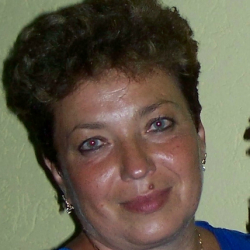Просмотр содержимого документа
«Презентация "Catherine the Great"»

Catherine II - Great Russian Empress.

Catherine II - Great Russian Empress. The second half of the 18th century in Russia is associated with the name of the Empress, whose reign constituted an entire era in the history of the country. A wise politician and subtle diplomat, Catherine II strove to strengthen the autocracy and create favorable conditions for the economic and spiritual development of the country. The reign of Catherine is one of the most glorious and difficult periods, which is considered great in Russian history.

The goal of Catherine II was to create Enlightened Absolutism in Russia. She strove to reach certain circles of the bourgeoisie without revolution and, with the help of reforms, achieve bourgeois transformations.

Under Catherine the Great, Russia inflicted some of the most severe defeats in their history during the Russo-Turkish War of 1768-1774. Peace was concluded with the Kuchuk-Kainardzhiysky treaty, which gave Russia the right to maintain a fleet in the Black Sea, provided it with territories in Azov, Kerch, Yenikal and Kinburn, made Crimea a protectorate of Russia and provided Russia with the position of defender of Orthodox Christians in the Ottoman Empire.

Catherine II undertook a number of important educational reforms. She created a commission to study educational systems in many different countries. On August 5, 1786, the Russian Statute of Public Education was put into effect. He detailed the subjects to be taught at each age and the teaching method. In addition, teachers were provided with a “teacher guide” that dealt with teaching methods.

Catherine the Great was responsible for increasing the focus on education in Russia. Several orphanages and boarding schools were established for orphans and abandoned children. The number of public and private schools was increased. Moscow University has reached unprecedented heights and has become an internationally recognized educational center. She founded a large orphanage in Moscow, as well as in St. Petersburg. In 1764, Catherine II issued a decree establishing the famous Smolny Institute in St. Petersburg, the first women's educational institution in Russia and the first state higher educational institution for women in Europe. The Smolny Institute was created for girls from the nobility. The following year, she also founded the Novodevichy Institute in Moscow for the daughters of commoners.

In 1785, Catherine issued a noble charter, which exempted Russian nobles from compulsory military or government service. In addition to administrative reforms, Catherine provided the conditions for an abundance of commodities, the expansion of trade and the development of communications. Large government spending led to a shortage of silver and huge masses of copper coins on the Russian domestic market, which made large transactions difficult. So, in 1769, Catherine II founded an assignment bank in St. Petersburg for the issue of banknotes in denominations of 100, 75, 50 and 25 rubles with the payment of similar amounts in copper money. These banknotes were the first state paper money in Russia.

Catherine II admired the ideals of the Enlightenment, the movements that dominated intellectual and philosophical thought in Europe during the 18th century. She sponsored many cultural projects and played a key role in the development of art, science and education in Russia. The Hermitage, one of the largest and oldest museums in the world, began as a personal collection of Catherine II. It currently houses over three million exhibits, including the largest collection of paintings in the world. She also played a role in the formation of the famous Bolshoi Theater and the neighboring Maly Theater. Catherine the Great led the period known as the Russian Enlightenment, which marked the flourishing of the arts and sciences and had a significant and profound influence on Russian culture.

































